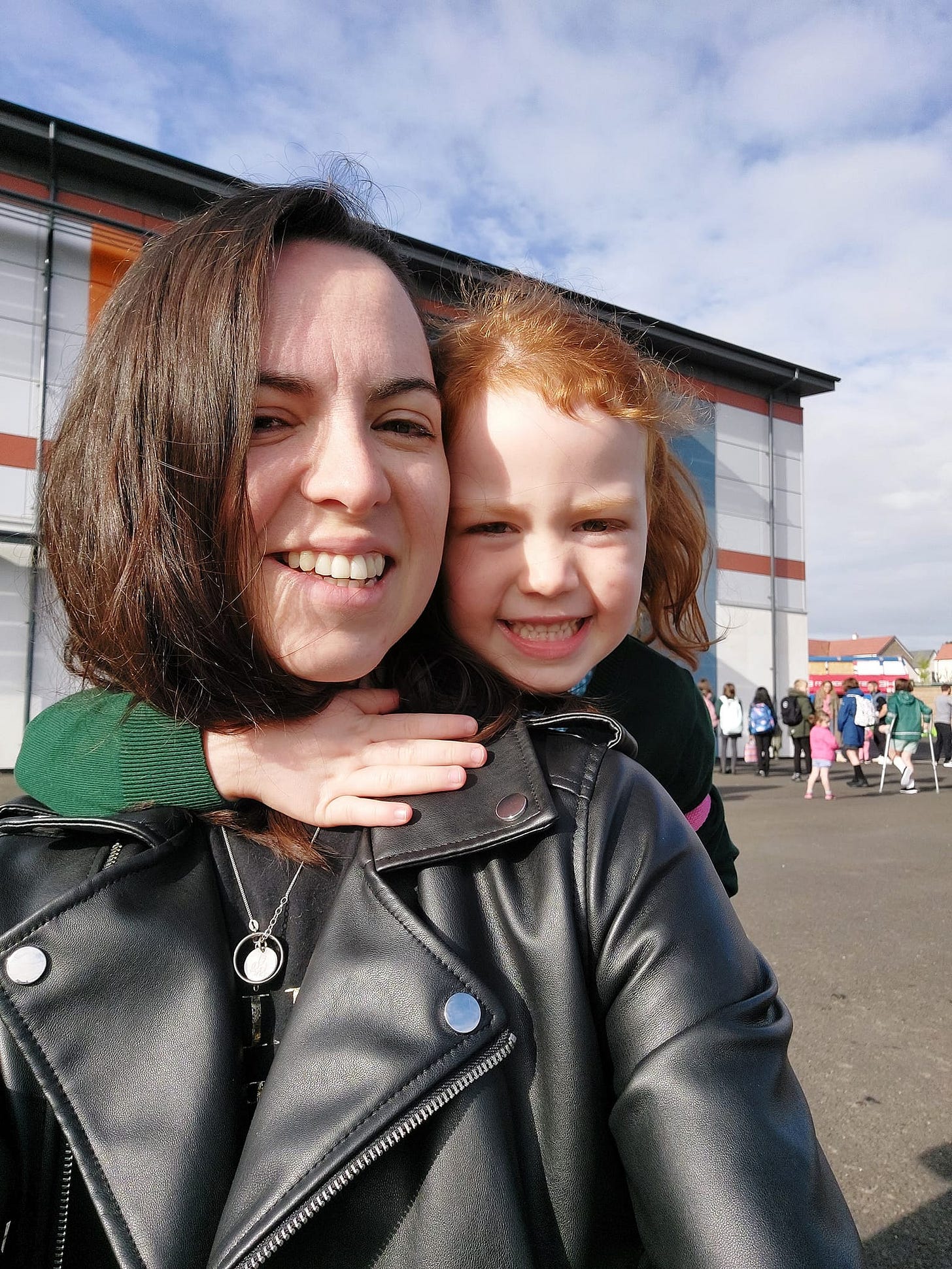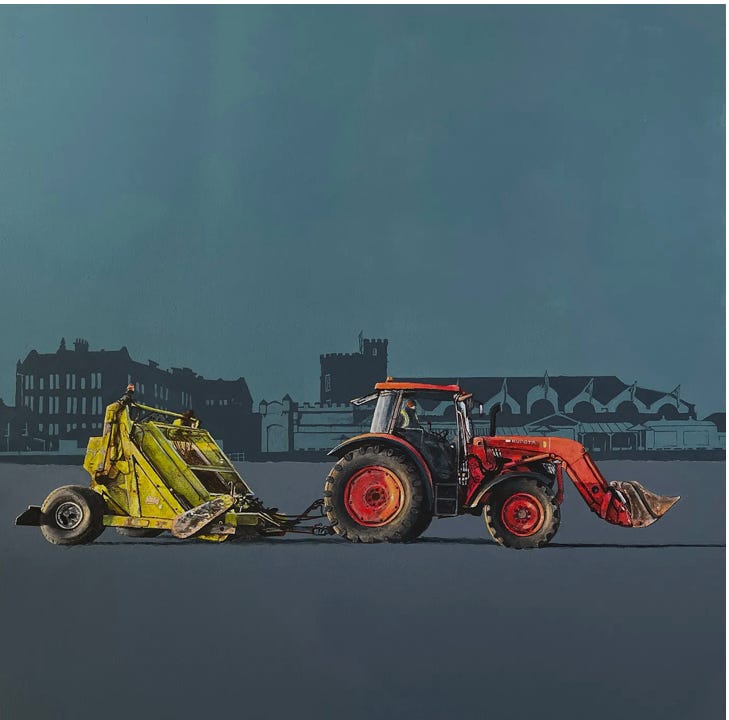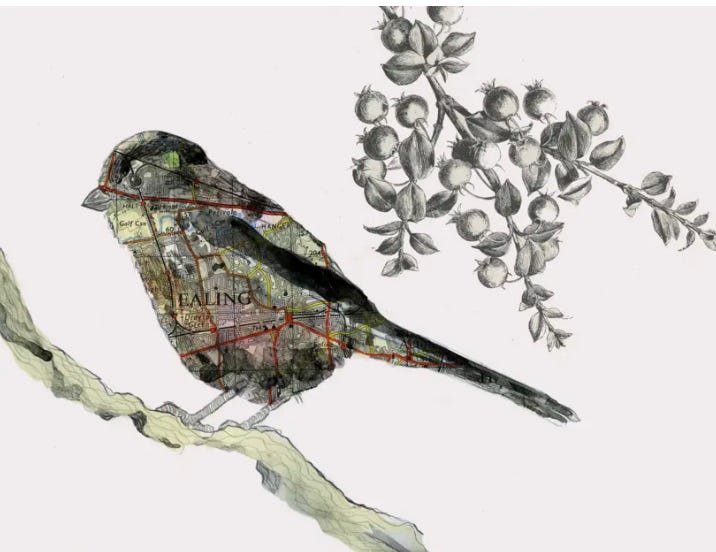Building a life-saving legacy for John
Bowel cancer is claiming a disproportionately high number of young people. The family of one Edinburgh man are determined to make a difference.
Lorna will never forget Father’s Day, 2020. A peaceful family picnic in her parents’ garden ended with news that shattered her world.
Her 35-year-old husband, John McCallum, was in hospital having surgery on a case of suspected acute appendicitis at the Western General. Instead, the surgeons found a large tumour had perforated his bowel.
If the cancer had not spread, his chances of surviving were high, around 90%. If it had spread to more distant parts of his body, particularly the liver or lungs, his chances would be little more than 12%. How early it had been discovered was literally a matter of life and death.
He was relentlessly optimistic, a fighter who never gave up hope, until all hope was gone in the final few weeks of his life. He died in November 2021, peacefully at home, with Lorna and his mum Elaine at his side. The couple have two young children, now aged 4 and 6.
She said: “When we were told that John had bowel cancer, it was surreal. Neither of us could believe it. When we learned it was stage 4 it was devastating. He was so young and strong, how could it be possible? John was a martial artist, he played American football, exercised regularly.
“When we had recovered from the initial shock, we were determined to beat it and we were convinced that we would. Sadly, even with his youth and strength, John’s cancer had been discovered too late and we lost our fight.”
Lorna, now aged 34 and working as a vet, added: “It has made me determined to do everything I can to help raise awareness of this disease, and to help other people in Scotland and the UK who are going through what we had to endure.
“So I and Josh Mattox, who lost his wife Lyndsey in similar circumstances to pancreatic cancer, decided to launch GI Cancer Care. Like me, Josh and Lyndsey couldn’t comprehend what was happening to her so young. Lyndsey was 41 when she died, and the couple had three young children, plus two others by previous marriages. It’s not just about adults losing loved partners, it’s about kids losing parents.”
“Yes, there are cancer charities out there, but we believe we can occupy a smaller, different space, providing a place for young cancer sufferers to talk with one another online and in person, and to help signpost the help that’s available, and one of our absolutely key aims is to raise awareness within the medical profession itself.”
Every year more than 2,600 younger people are diagnosed with bowel cancer in the UK.
To put that number into context, this is comparable with the number of people of all ages diagnosed with some different cancer types, such as cervical cancer (3,192) and testicular cancer (2,364).
Bowel Cancer UK say: “Despite this, awareness that this is a disease that younger people can be diagnosed with is low amongst the general public and healthcare professionals. As a result, people under 50 can find it harder to get a diagnosis through referral by their GP, with one in four being diagnosed as an emergency, compared to one in seven in the over-50s.
“Delays in being referred for crucial and potentially lifesaving tests lead to younger people being diagnosed at a later stage when their chance of survival is worse. One in four bowel cancer patients under 50 are diagnosed at the latest stage in comparison to one in five in those over 50.”
In lockdown, Lorna hadn’t even been able to visit John in hospital. He was on his own when he learned the tumour was malignant. Worse was to follow, as John was also alone when he was told it had spread to his liver, and he was diagnosed with stage 4 bowel cancer, one of Britain’s biggest killers.
She said: “That was one of the hardest things to bear, for both of us, knowing that he was on his own when he was waiting for, and then received, such awful news. We spoke on video calls several times every day, but it is not the same is it?”
In the final months, after surgery had been ruled out, chemo had proven ineffective and he’d been told he was unsuitable for immunotherapy, John’s only hope lay in a pioneering live-donor liver transplant in Germany, which would have cost £200,000. The couple raised more than £120,000 from the generous public, but sadly John was never well enough to make the journey.
Lorna asked her donors if they were happy with her plan to split the funds raised – half would go to look after the future of the couple’s daughters, then aged just 2 and 4, while half would be spent on helping others in the same situation. Since then Lorna has made a sizeable donation to Bowel Cancer UK to support Scotland’s first Colorectal Cancer Surgical Research Chair in partnership with the Royal College of Surgeons of Edinburgh, and has helped several other young people who shared John’s plight.
She said: “We are taking part in the kiltwalk on September 17th and we will have a launch event in Edinburgh later in the autumn. We are hoping that as many people as possible will support us. Josh and I really believe we can play a part in raising awareness of this growing problem, through telling of our own experiences.”
“We now know that the COVID-19 pandemic has had, and sadly will continue to have, a profound impact on NHS services and sadly, those with bowel cancer have been disproportionately affected by the crisis, with people unable to access lifesaving treatment and surgeries during this time, as well as cancer screening and surveillance being paused.”
Bowel Cancer UK emphasised this point: “The pandemic has served to amplify existing issues experienced by younger people with bowel cancer.”
“Four in ten people had to visit their GP three or more times before being referred for further tests. GPs play the vital role of ‘gate-keeper’ to further investigation; they must be equipped with the knowledge and tools to refer younger people with bowel cancer symptoms at the earliest opportunity. Although there is guidance for GPs for the referral of people under 50 with symptoms of bowel cancer, this hasn’t been effectively translated into practice and as a result patients are still facing damaging delays. We found that some patients were even told by their GP that they were too young to have the disease, leading to unacceptable delays to their diagnosis and treatment.”
“Our Never Too Young campaign was launched in 2013 and is leading the change for younger bowel cancer patients. Since then, we’ve raised awareness amongst the public and clinical community about bowel cancer in younger people, campaigned for the identification of those at high risk of developing the disease, provided information and support to this frequently overlooked group, and influenced policy changes to improve early diagnosis, treatment and care.”
“But more needs to be done: Our report published in 2020 surveyed over a thousand young people living with bowel cancer. It found:
∙Half of younger people surveyed didn’t know that they could develop the disease before their diagnosis.
∙Four in ten people had to visit their GP three or more times before being referred for further tests.
∙Nearly half of those diagnosed with bowel cancer after 2017 hadn’t been offered testing for Lynch syndrome, a genetic condition that can increase the lifetime risk of bowel cancer to up to 80%.
∙One in five younger patients with bowel cancer told us they did not have access to a Clinical Nurse Specialist (CNS). Patients experienced varying levels of support at different points in their diagnosis, treatment and care.”
As well as donating to the new Research Chair, Lorna has also donated to support the Never Too Young campaign and will continue to work closely with Bowel Cancer UK and other cancer charities.
One of their plans is to work with medical schools, to try to raise awareness of the issue with medical students as they are training to be doctors.
She said: “Everyone wants the same thing. No-one wants to see younger people die from bowel cancer when we know, caught early, treatment is much more successful and often far less expensive. We need to raise awareness, but we also need to increase screening and bring the age down.
“Age is a factor, of course, but it isn’t the only one. Believe me, I know this from the worst possible experience.”
You can learn more about the impact of bowel cancer on young people and the work of Lorna’s charity at GI Cancer Care.
Art and nature on show this weekend and next
The wildlife and scenes of life along the coast in Edinburgh and East Lothian feature prominently in a special event which sees artists open up their studios to the public.
Art Walk Porty offers the chance to explore a total of 28 artists’ studios all within walking distance of each other either on or close to Portobello Prom.
You can pick up programmes and see the Vessel exhibition featuring the work of residency artists, including Jonathan Baxter, Tonya McMullan, Murray Morrant and Jenny Pope, at the Art Walk Hub at 189 Portobello High Street.
Art Walk Projects describes itself as “an artist-led organisation working collaboratively with artists, communities and audiences to create social place-centred projects & residencies based around Portobello and Edinburgh’s north eastern coast”. The annual art walk event combines a celebration of the local creative community with artists and inspiration from further afield. There are public works of art to spot around the streets too.
Art Walk Porty, 10am-6pm, Saturday and Sunday, 2-3 and 9-10 September









